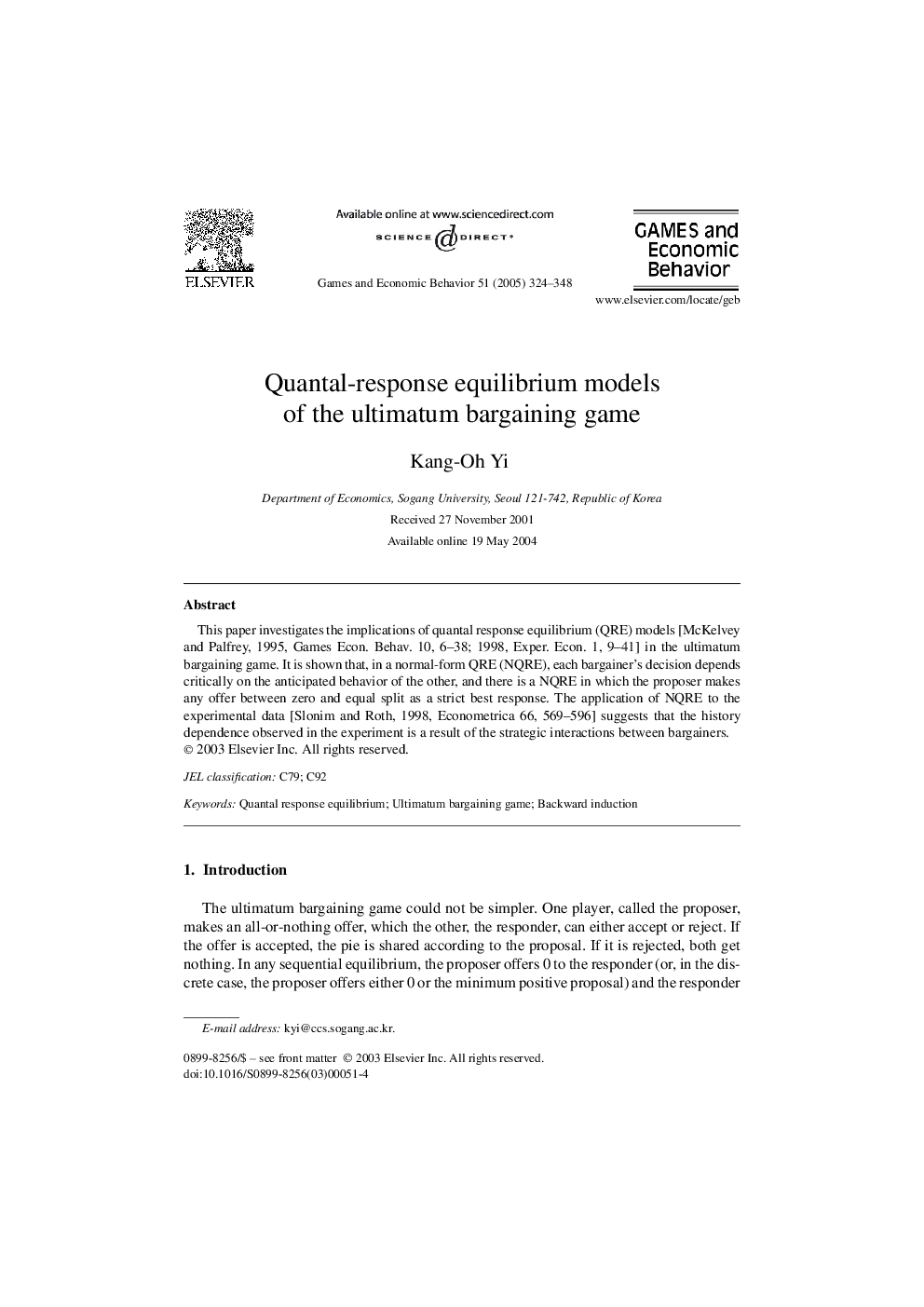| Article ID | Journal | Published Year | Pages | File Type |
|---|---|---|---|---|
| 9551713 | Games and Economic Behavior | 2005 | 25 Pages |
Abstract
This paper investigates the implications of quantal response equilibrium (QRE) models [McKelvey and Palfrey, 1995, Games Econ. Behav. 10, 6-38; 1998, Exper. Econ. 1, 9-41] in the ultimatum bargaining game. It is shown that, in a normal-form QRE (NQRE), each bargainer's decision depends critically on the anticipated behavior of the other, and there is a NQRE in which the proposer makes any offer between zero and equal split as a strict best response. The application of NQRE to the experimental data [Slonim and Roth, 1998, Econometrica 66, 569-596] suggests that the history dependence observed in the experiment is a result of the strategic interactions between bargainers.
Related Topics
Social Sciences and Humanities
Economics, Econometrics and Finance
Economics and Econometrics
Authors
Kang-Oh Yi,
